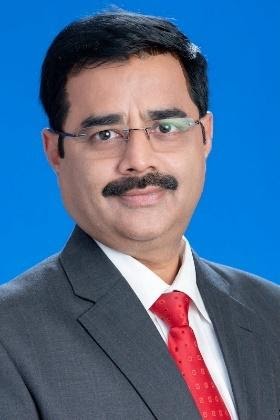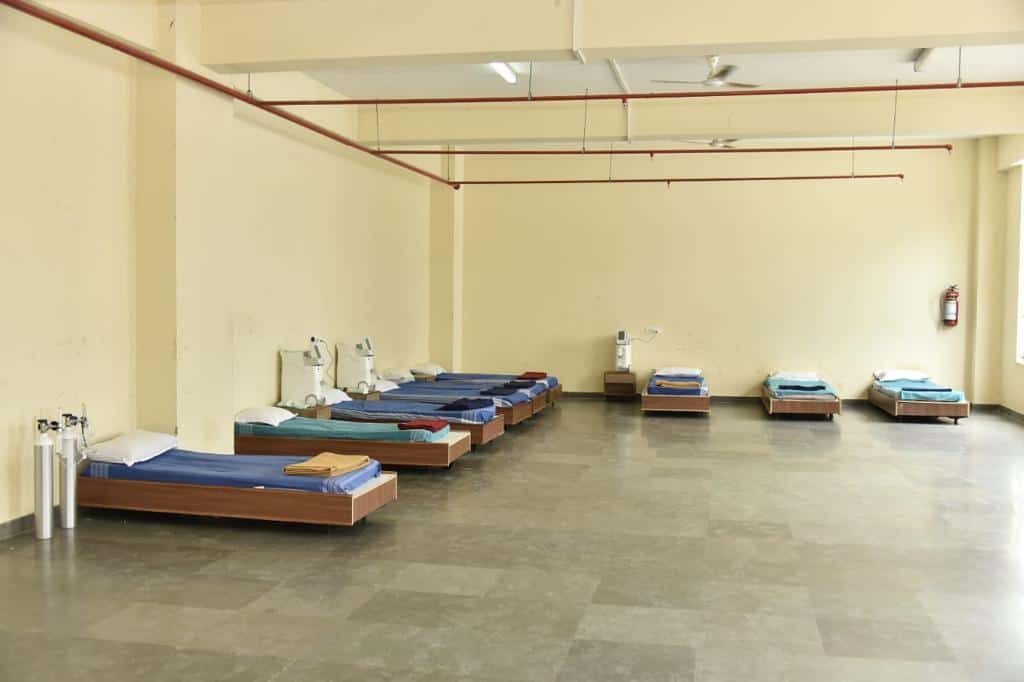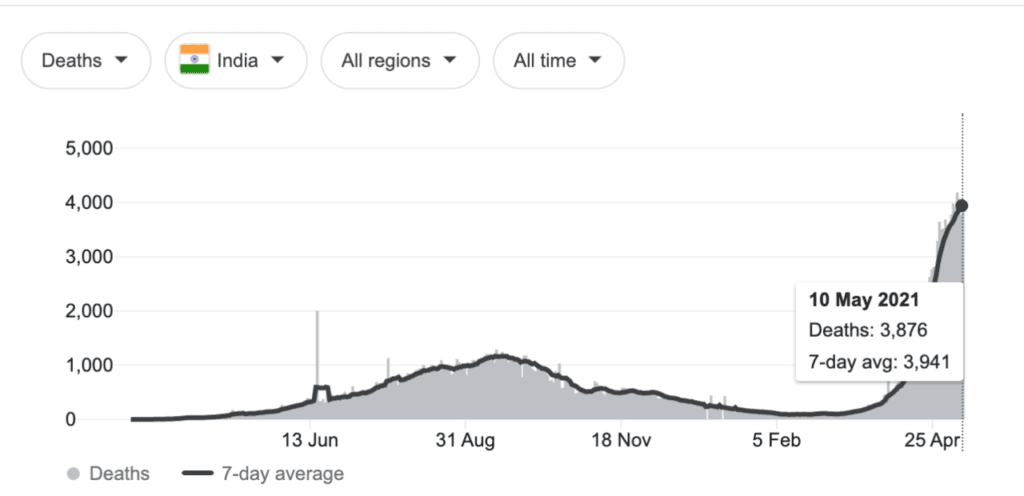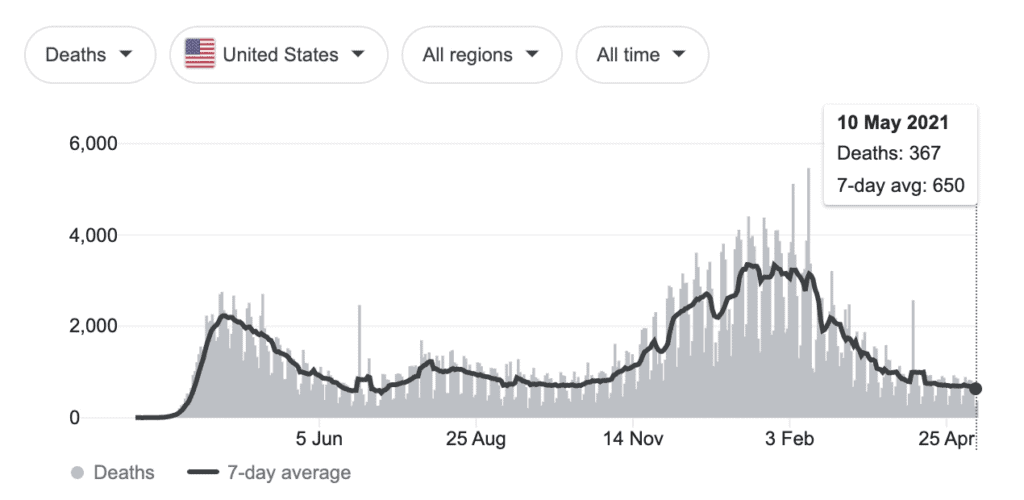As the BBMP began to streamline its bed allocation system, private hospitals in Bengaluru — under the Private Hospitals and Nursing Homes Association (PHANA) — were quick to launch their own bed allocation system through their online portal. While 50% of their beds are set aside for patients coming through the BBMP’s triaging system, Bengaluru’s private hospitals and nursing homes are allowed to allot the other 50% themselves.
PHANA was set up 20 years ago and currently has over 400 members in Bengaluru and many affiliate members across the State. The association set up ‘Search My Bed’ which gives real-time inputs of beds available. The user gets information on the availability of beds and the location of that hospital via this portal.
PHANA is being supported by a senior resource from IIHMR, Dr Chethana and her team of 30 students, who are getting hospitals registered under KPME to sign up on our portal (as directed by BBMP in an order dated May 5, 2021). PHANA hopes to get all its member hospitals and nursing homes signed up on the portal. That would make available at least another 6500 beds for the city (in addition to what has already been given), says Dr Rajsekhar, member secretary of PHANA, in this interview.
Read more: Op-ed: “State’s response to second wave was slow, indecisive, inadequate”
There have been hiccups in this system as well, but it will be set right in the next 10-14 days, assures Dr Rajsekhar. “Compliance in getting data has been a challenge and top leadership of hospitals need to keep this as a priority to uphold their brand image in transparency and care. However with each passing day, more and more hospitals are updating the data in real time,” he says. Here are edited excerpts from the interview:
How many hospitals have signed up on the platform? Are there more to sign up?
Presently (as on May 14), 112 hospitals in Bengaluru have signed up. A total of 7766 beds are available in these 112 hospitals. Of this, 3523 have been allocated to the government and 2189 are available for the private category. In the private category, 889 are general beds, 1053 oxygen beds, 196 ICU beds and 115 ICU+ventilator beds.

What challenges are you facing to get hospitals to sign up and how to overcome that?
Nothing too major except for the initial resistance from hospitals that they would need to reserve beds for their long-time patients. We have addressed this by regular conversations and engagement.
Any issues around the response from government?
We were the first to warn GoK on April 17 about the imminent oxygen shortage. They could have acted faster on both oxygen and medicine supply. Also, other States and cities have set up jumbo centres (500 plus beds), most of them are oxygenated. This is yet to be implemented here.

Does PHANA plan to coordinate with the war rooms to ensure seamless triaging and integration of bed allocation?
No, our beds are not dependent on the war room, and are outside what has been allocated to BBMP.
Will PHANA’s platform also accommodate non-COVID SARI ILI patients showing symptoms?
We are an aggregator platform that shows availability of beds. Patients can call, indicate their symptoms and block their beds. Unlike BBMP-run war rooms where the booking is made with a BU ID (which is available in every COVID positive report), patients showing clear symptoms and declining saturation levels without a positive test result would be accommodated by us.
How will PHANA address oxygen supply demand for these beds?
PHANA hospitals have their trusted list of suppliers. We also coordinate with the war room and nodal officer when we are facing a deficit.
With the paucity of oxygenated beds in the system, we are working with the BBMP in partnership with ACT Grants, United Way Bengaluru and Doctors for You (DFY) to set up Level-2 COVID Care Centres. Level-2 CCC’s are a step up from L-1 CCC’s and will be able to cater to moderately symptomatic cases. L-2 centres will have oxygenated beds, medicine supply and 24×7 trained healthcare staff, and will help prevent the shortage of oxygen beds in Bengaluru. Additionally, Level-3 CCC’ s with HDU beds are also a focus area in hospitals and medical colleges and will cater to severe cases. We should see some of these units operational very soon. ACT Grants is supporting Oxygen concentrators while DFY will support medical expertise and human resources and Sattva and United Way Bengaluru are M&E and Fundraising partners for these centres.
Lakshmi Sethuraman, Principal, Sattva, a social impact consulting organisation, that has been working very closely with GoK through the pandemic
Any other plans to de-risk given the imminent third wave ?
We will always play an advisory role to the government. We were the first to indicate to GoK about the 8000 beds available through medical colleges.
Through PHANA we plan to create a universal Triage system that our network of hospitals can adopt. We plan to set up a repository of plasma donors. Many step-down hospitals have been set up using hotel premises and we can act as a conduit to tie them up with healthcare providers and hospitals.
Read more: COVID bed nightmare: What the govt committee recommends
Also, the mental state of our health care professionals is highly fragile as they are dealing with so many casualties and deaths. We will soon set up a counselling platform for our network of hospitals and its health care professionals
What’s your advice to citizens?
No one expected the second wave to be this debilitating. Bengaluru has one of the best healthcare infrastructures in the country although it may appear to be crumbling at this stage.
Other countries had their second wave in December/January and deaths per 1 million population for the USA stood at 1600, UK 1900 while in India it was 177. Bengaluru is probably as large as the UK, just to put it in perspective.


We have to stay united to fight this pandemic. This is not a time to be pointing fingers at each other. I would appeal to citizens to continue following COVID appropriate behaviour and not only when the city is locked down. With these changed strains, the chances of re-infection are very high so even if one has had the infection it’s no excuse to lose the mask!